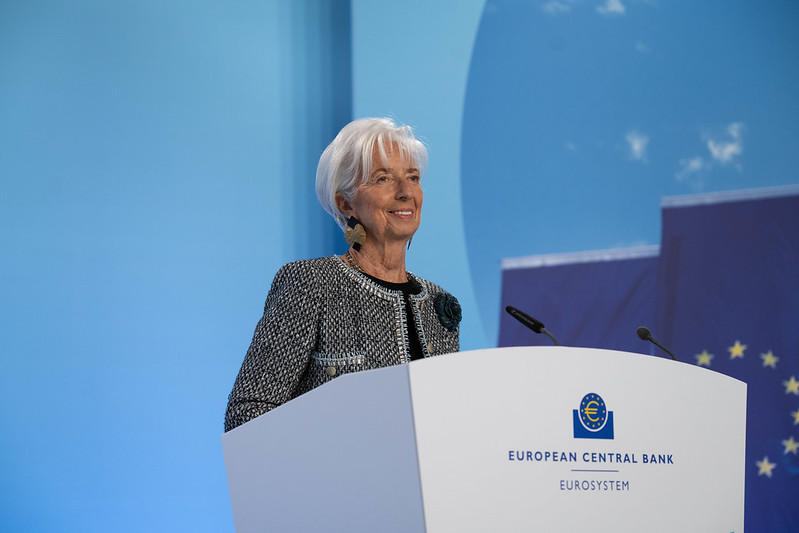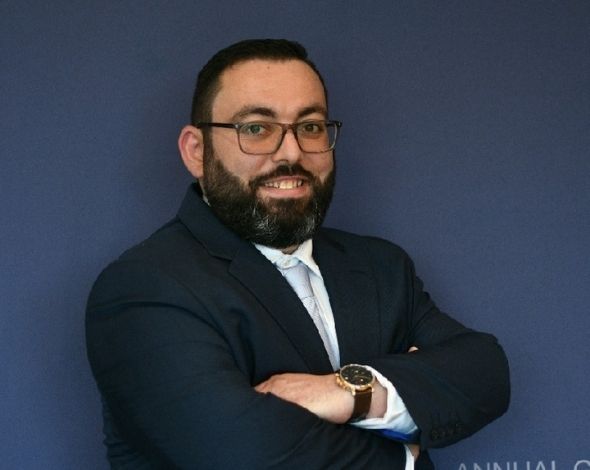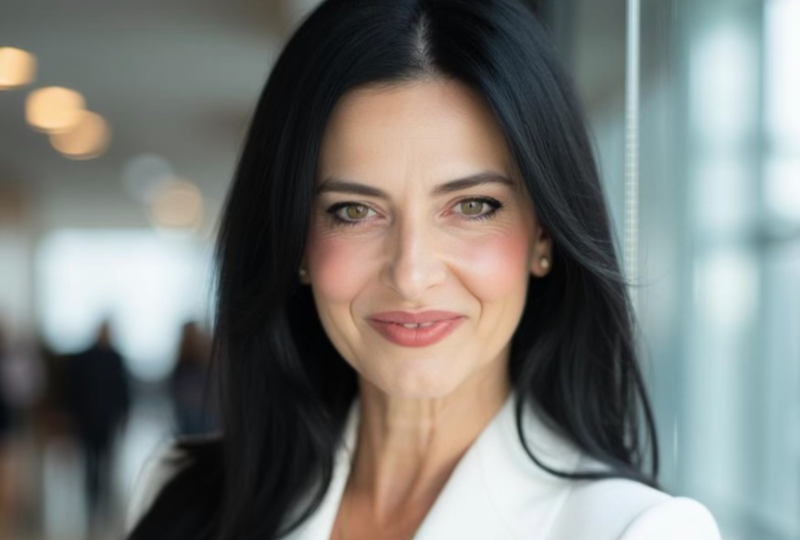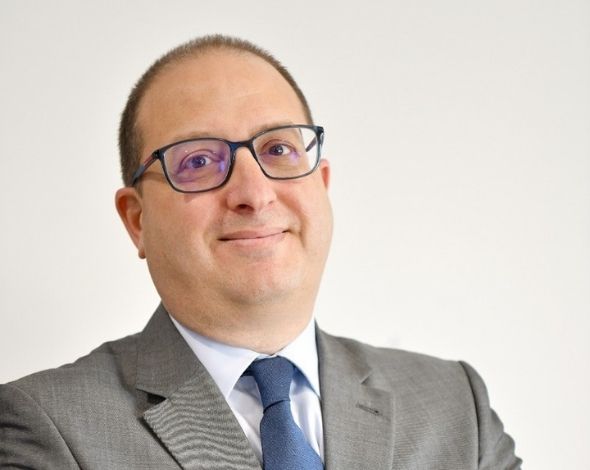The world is shifting. Open markets are fracturing, multilateral rules are weakening, and the post-war order that allowed globalisation to flourish is no longer a given. Even the US dollar – long the bedrock of the international monetary system – no longer feels unshakeable in its dominance.
As global dynamics evolve, Europe finds itself at a critical juncture. The economic uncertainty triggered by protectionist policies, bilateral power plays, and rising geopolitical tensions is already weighing heavily on the European economy. With around 30 million jobs tied to international trade, the EU has much at stake.
And yet, in this moment of disruption lies a rare opportunity: The chance for Europe to reclaim strategic autonomy and elevate the euro to true global prominence.
The euro’s global promise
At present, the euro accounts for 20 per cent of global foreign exchange reserves – a distant second to the US dollar’s 58 per cent share. Strengthening the euro’s international role could bring clear benefits: Lower borrowing costs for governments and businesses, reduced exposure to exchange rate shocks, and greater resilience against foreign sanctions or coercive economic measures.
But, as European Central Bank President Christine Lagarde recently stated, “such a step towards greater international prominence for our currency will not happen by default: It must be earned.”
Indeed, although concerns about the dollar’s role are growing, they have yet to trigger a significant shift toward alternatives. Instead, the world is turning to gold – a telling reminder that confidence in a currency is not built on rhetoric but on hard facts.
For the euro to fulfil its potential, Europe must reinforce three core pillars: Geopolitical credibility, economic strength, and institutional trust.
Trade power is currency power
Europe is already a giant in global trade – the EU is the top trading partner for 72 countries, representing nearly 40 per cent of global GDP. This is mirrored in the euro’s usage as an invoicing currency, which stands at around 40 per cent globally.
Ms Lagarde notes that Europe must use this position to its advantage by forging new trade agreements and leveraging its economic weight to expand the euro’s influence. The so-called “exorbitant privilege” that comes with being a global reserve currency, a term coined by Valéry Giscard d’Estaing in the 1960s, also carries responsibilities. One of these is ensuring that euro liquidity remains available beyond the EU’s borders.
This is why the ECB extends swap and repo lines to key international partners – not out of generosity, but to ensure the smooth transmission of its monetary policy and to project confidence in the euro’s stability.
But confidence is not won with tools alone. “Investors seek regions that honour their alliances,” Ms Lagarde reminds us – and doing so can boost a currency’s share in foreign reserves by as much as 30 percentage points.
Growth, markets, and safe assets
The backbone of any international currency is economic might. Successful issuers typically offer three things: Solid growth, deep and liquid capital markets, and a reliable supply of safe assets.
On these fronts, Europe faces hurdles. Growth has been persistently sluggish. Capital markets remain fragmented. And while the EU’s overall fiscal position is relatively strong – with a debt-to-GDP ratio of 89 per cent compared to the US’s 124 per cent – the supply of high-quality, low-risk sovereign bonds remains limited.
In the US, outstanding sovereign bonds rated AA or higher amount to over 100 per cent of GDP. In the EU, they total less than half that. Without a stronger supply of safe assets, the euro’s potential as a reserve currency is constrained.
To address this, Europe must move forward with structural reforms. Completing the single market, building a genuine Capital Markets Union, and cutting red tape are essential steps. In addition, strategic sectors such as green technology and defence must be supported through co-ordinated, EU-wide investment – including joint financing for public goods, which could in turn generate more safe euro-denominated assets.
Institutions matter more than ever
Currency strength is also about governance. For global investors, trust in a currency hinges on the credibility of the institutions behind it. The EU’s institutional structure – while complex – offers a unique model of checks and balances, long-term policy stability, and respect for the rule of law.
As Ms Lagarde puts it, “respect for the rule of law and the independence of key institutions, like the ECB, are critical comparative advantages the EU should leverage.”
However, Europe’s institutional framework is not without flaws. The requirement for unanimous decision-making on major issues can paralyse progress and stifle the Union’s ability to act decisively. “A single veto must no longer be allowed to stand in the way of the collective interests of the other 26 Member States,” Ms Lagarde argues.
Introducing more qualified majority voting in critical areas would not only enhance EU decision-making – it would also allow Europe to speak more clearly and confidently on the international stage.
A currency for a changing world
Ms Lagarde’s warning is clear: “Regimes seem enduring – until they no longer are.” The dominance of the US dollar has withstood decades of challenge, but history reminds us that change in global monetary leadership is possible – and often sudden.
The euro’s rise to greater global relevance will not be automatic, nor can it be passive. It requires bold decisions and long-term commitment. Europe must act – not react – if it wants to shape the next phase of global economic order.
“This is a ‘global euro’ moment,” she concludes. “To seize it… we must act decisively as a united Europe taking greater control of its own destiny.”
For European leaders, the message is unambiguous. For the euro to thrive, Europe must lead – not just in values and vision, but in strength, strategy, and sovereignty.
Featured Image:
ECB President Christine Lagarde at a press conference on 12th December / Photo by © Maria Rita Quitadamo/ECB
Mark Mifsud appointed Director at Vega Marine
Vega Marine describes itself as the global leader of cruise ship laundry.
Kerstin Ancilleri joins ECONOMIQ Group as Managing Partner
She is 'passionate about people and the great things they can achieve with the right leadership and support.'
Using AI for your company? You may not own what it creates
Maltese businesses increasingly relying on AI tools for branding, but do they own it?
Simon Montanaro appointed chairman of Harvest Technology
Simon Montanaro was Melita's Chief Technology Officer between 2009 and 2023.









